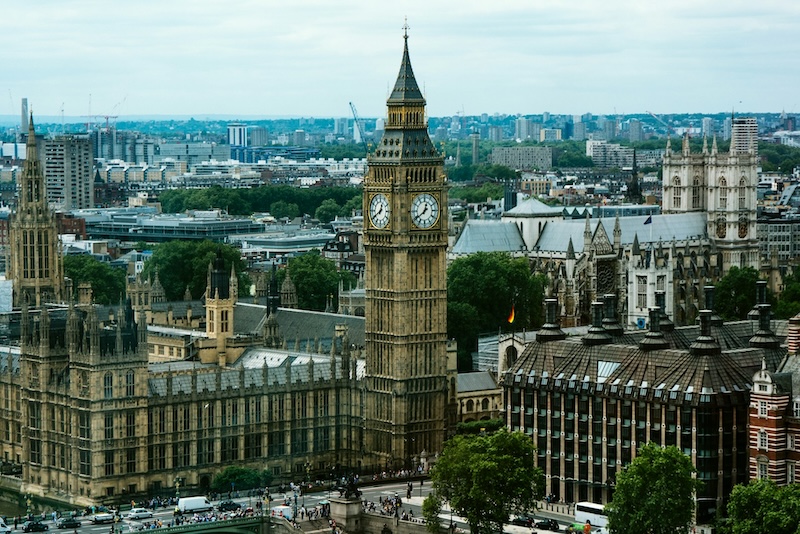Urgent Humanitarian Aid: UK Government Pledges £61 Million
 In December 2024, the U.K. government pledged £61 million for urgent humanitarian aid. The Development Office has designated the money for addressing humanitarian crises caused by escalating conflict in the Middle East, the tropical cyclone Chido and to aid internally displaced people in the Democratic Republic of Congo.
In December 2024, the U.K. government pledged £61 million for urgent humanitarian aid. The Development Office has designated the money for addressing humanitarian crises caused by escalating conflict in the Middle East, the tropical cyclone Chido and to aid internally displaced people in the Democratic Republic of Congo.
Cyclone Chido
The U.K. government designated up to £5 million to aid those that cyclone Chido in Mozambique affected. Cyclone Chido hit Mozambique in December 2024, with winds of more than 200 km/h an hour and 176 mm of rainfall within 24 hours, causing widespread destruction. Chido marked the beginning of the South-West Indian Ocean tropical cyclone season. According to the World Meteorological Organization (WMO), Chido has been the worst cyclone to hit the region in about 90 years. High wind speeds, heavy rainfall and storm surges accompany cyclones, which leads to widespread damage and flooding. Chido’s destruction injured 768 people with more than 622,00 people affected by the cyclone.
The cyclone has destroyed more than 35,000 homes and affected more than 90,000 children in Cabo Delgado in Northern Mozambique, according to UNICEF. Along with homes, the cyclone severely damaged classrooms and health facilities. Cabo Delgado has seen seven years of brutal conflict, which displaced more than 1.3 million people, the majority of which were women and children, before Cyclone Chido wreaked havoc in Mozambique. There are currently 4.8 million people in need of humanitarian assistance in Mozambique, of which 3.4 million are children.
The U.K. aims to reach about 350,000 people in need of humanitarian assistance in Mozambique by providing immediate shelter, clean water and sanitation. Further, the £5 million designated for humanitarian relief in Mozambique aims to ensure that the country is better prepared for the rest of the 2024-2025 cyclone season by coordinating with the International Organisation for Migration (IOM) and the United Nations Office for the Coordination of Humanitarian Affairs, according to the U.K. Government.
Bangladesh
The U.K. Government committed £5 million of humanitarian aid for Bangladesh to provide shelter, healthcare and clean water in the Rohingya refugee camps. The Rohingya are a Muslim ethnic minority group residing in predominantly Buddhist Myanmar, where they are not recognized by the state and denied citizenship. As of August 2024, about 1 million Rohingya have sought refuge in Bangladesh after fleeing from prosecution in Myanmar. The U.K. government has given urgent humanitarian relief to the UNHCR, the IOM and UNICEF.
Somalia
The Development Office has designated another £5 million to support the International Committee of the Red Cross (ICRC) and its efforts in Somalia to provide emergency assistance, basic health care, food and water. The ICRC has been operating in Somalia since 1977 and provides humanitarian relief to families in Somalia that are affected by years of armed conflict and climatic shocks.
Democratic Republic of Congo
Another £5 million will be given to the World Food Programme (WPF) to support its efforts in the DRC, where currently 25.6 million people are facing crisis and emergency levels of food insecurity. The DRC faces one of the largest hunger crises in the world. Armed conflicts within the country have displaced a large part of the population and hunger continues to grow. The U.K.’s aid will deliver assistance to about 48,000 people and help address their immediate needs.
Burkina Faso, Mali, Niger
Due to the ongoing food crisis in the Sahel region, the U.K. Government aid package designated up to £8 million to provide food assistance in partnership with the ICRC, which is providing humanitarian aid in the region due to ongoing droughts and soaring food prices, which have exacerbated food insecurity in the region, Currently more than 3 million people in Niger and 3 million people in Burkina Faso are facing emergency food insecurity.
Myanmar
The U.K. Government has allocated a further £11 million of aid to address the humanitarian crisis in Myanmar. The money will provide lifesaving treatments for malaria and provide access to lifesaving sexual health and maternal health treatments. Myanmar has a maternal mortality ratio of 282 compared to the Southeast Asian average rate of 140. This means that out of 100,000 live births, there are 282 related deaths. Most of these deaths are related to postpartum bleeding, unsafe abortion and sepsis, which with the right treatment and care are mostly preventable.
Middle East
The U.K. government dedicated £22 million of aid, the largest portion of the package, to address the escalating crisis in the Middle East, which came shortly after the Prime Minister allocated £13 million to UNRWA on December 11, 2024, supporting essential services for Palestinian refugees across the Occupied Palestinian Territories, Jordan, Lebanon and Syria. Later in December, the Prime Minister and Foreign Secretary committed over £60 million to aid Syrians through various UN humanitarian funds and the U.K. Aid Fund for Northern Syria, according to the U.K. Government.
Addressing Humanitarian Crises
This urgent humanitarian aid package demonstrates the U.K. government’s continued commitment to addressing humanitarian crises worldwide through strategic partnerships with U.N. agencies and international organizations like the ICRC, WFP and UNICEF. The distribution of funds across multiple regions reflects a balanced approach to global humanitarian assistance, with particular emphasis on immediate crisis response in the Middle East, climate disaster relief in Mozambique, and addressing food insecurity in the Sahel region. However, this commitment operates within the context of the U.K.’s reduced overseas aid spending from 0.7% to 0.5% of GDP, raising questions about the scale of future humanitarian interventions despite the government’s evident willingness to respond to urgent global crises.
– Salome von Stolzmann
Salome is based in London, UK and focuses on Politics for The Borgen Project.
Photo: Unsplash
